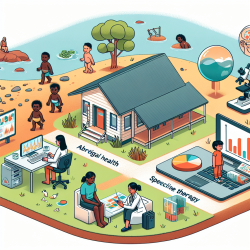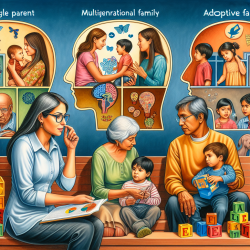The provision of child health services in remote regions, particularly for Aboriginal communities, presents numerous challenges that require data-driven solutions. The research article titled "Review of Aboriginal child health services in remote Western Australia identifies challenges and informs solutions" provides critical insights that can guide practitioners in improving their service delivery. This blog post will outline key findings from the research and suggest actionable steps for practitioners to enhance outcomes for children in these settings.
Key Challenges Identified
The study conducted a comprehensive review of child health services in the Fitzroy Valley, West Kimberley, and identified several significant challenges:
- Inadequate numbers of health professionals and high staff turnover
- Complex funding and administrative arrangements leading to poor coordination
- Large geographic area with limited transportation options
- Lack of cultural safety and shortage of Aboriginal Health Workers (AHWs)
Actionable Steps for Practitioners
Based on the research findings, practitioners can take the following steps to improve service delivery:
1. Strengthen Coordination and Integration
Coordination between government, community-controlled agencies, health, and education sectors is crucial. Implementing a unifying model of care that emphasizes capacity-building within Aboriginal communities can enhance service delivery. This involves regular communication and collaboration among all stakeholders.
2. Enhance Cultural Competency
Training programs focused on cultural competency can help health professionals deliver more culturally safe services. Employing more Aboriginal Health Workers (AHWs) and providing them with adequate support and training is essential.
3. Utilize Technology for Better Coordination
Leveraging technology, such as telehealth services and online scheduling systems, can improve access and coordination. Practitioners can use these tools to ensure that children receive timely and consistent care.
4. Focus on Preventative Care
Shifting the focus from acute illness to preventative care and chronic disease management can lead to better long-term outcomes. This involves regular health screenings, vaccinations, and education on healthy lifestyles.
5. Conduct Regular Audits
Regular audits of child health services can identify gaps and areas for improvement. These audits should involve community input to ensure that the services meet the needs of the population.
Encouraging Further Research
While the research provides a solid foundation, ongoing research is necessary to adapt to changing needs and challenges. Practitioners are encouraged to engage in continuous learning and contribute to research efforts that aim to improve child health services in remote areas.
To read the original research paper, please follow this link: Review of Aboriginal child health services in remote Western Australia identifies challenges and informs solutions.










